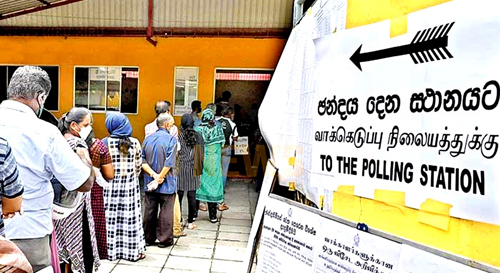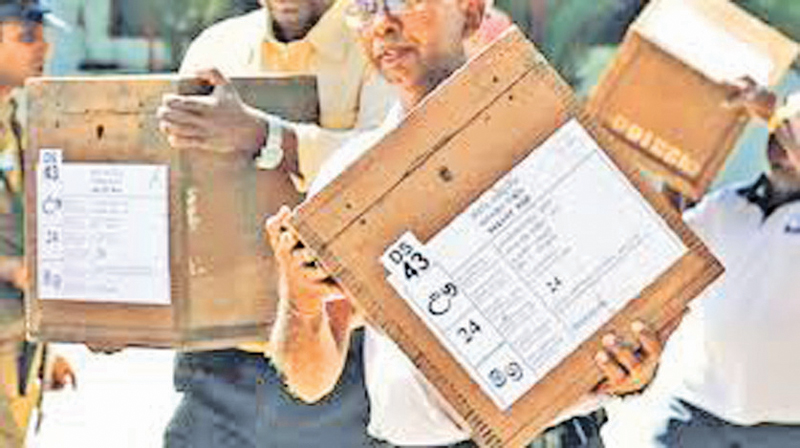As election seasons approach, a palpable energy begins to ripple through society, affecting citizens, media outlets, political parties, and institutions alike. This phenomenon, often referred to as “election fever,” can evoke feelings ranging from excitement to anxiety, depending on one’s perspective. The fever spreads rapidly, as people become consumed with discussions about candidates, policies, campaign strategies, and potential outcomes. While elections are fundamental to democratic processes, this fever can also have significant social, psychological, and political consequences.
The Anatomy of Election Fever
Election fever is not a new phenomenon. Historically, elections have always been accompanied by heightened emotional states, as people grapple with the weight of deciding their country’s leadership. However, modern factors have exacerbated the intensity and pervasiveness of election fever.
1. Media Coverage and Social Media
Traditional media outlets play a central role in shaping public perceptions of elections. During campaign seasons, news channels and newspapers intensify their coverage, with round-the-clock updates, panel discussions, and detailed analyses of polling data. This nonstop coverage feeds into the excitement and anxiety surrounding elections.
 However, it is the rise of social media that has truly amplified election fever in recent years. Platforms like Twitter, Facebook, and Instagram enable instantaneous reactions, allowing political discussions to spread like wildfire. Social media also offers a platform for misinformation, fake news, and emotional polarisation, further fuelling the fire. Politicians, influencers, and ordinary citizens alike can contribute to the debate, often leading to echo chambers where people are exposed only to opinions that reinforce their own views. This polarisation only serves to heighten the fever, with people becoming more invested in the “us vs. them” mentality.
However, it is the rise of social media that has truly amplified election fever in recent years. Platforms like Twitter, Facebook, and Instagram enable instantaneous reactions, allowing political discussions to spread like wildfire. Social media also offers a platform for misinformation, fake news, and emotional polarisation, further fuelling the fire. Politicians, influencers, and ordinary citizens alike can contribute to the debate, often leading to echo chambers where people are exposed only to opinions that reinforce their own views. This polarisation only serves to heighten the fever, with people becoming more invested in the “us vs. them” mentality.
2. The Psychological Impact of Politics
Politics is deeply personal for many people, especially when issues like healthcare, education, economic stability, and social justice are at stake. During elections, the stakes can feel incredibly high, as citizens believe the outcome will directly impact their lives. This sense of urgency can lead to heightened emotional responses, including anxiety, anger, and frustration. Election fever taps into people’s fears, hopes, and aspirations, making it a uniquely emotional experience.
Psychologically, people may feel overwhelmed by the constant bombardment of information and opinions. For some, this can lead to what is known as “political fatigue,” where individuals become mentally exhausted by the ongoing political discourse. Others may experience “doom scrolling,” a phenomenon where people compulsively consume negative news about the election, exacerbating feelings of hopelessness and stress. In extreme cases, election fever can even lead to political stress syndrome, a condition characterised by physical symptoms such as insomnia, headaches, and anxiety.
3. The Role of Campaigns in Election Fever
Political campaigns play a key role in stoking election fever. Campaign strategies are carefully crafted to tap into voters’ emotions, using persuasive rhetoric, imagery, and advertisements to create a sense of urgency and importance. Campaign rallies, debates, and speeches are designed to energise supporters and win over undecided voters. In doing so, campaigns often contribute to the feverish atmosphere surrounding elections.Campaigns also play into people’s fears, highlighting what they perceive as the negative consequences of electing the opposing candidate. Attack ads, smear campaigns, and inflammatory rhetoric are common tactics used to sway voters by amplifying emotions. This approach, while effective in mobilising voters, can also contribute to the sense of division and polarisation within society.
The Social Consequences of Election Fever
Election fever doesn’t just affect individuals; it has broad social consequences. As the political temperature rises, relationships between friends, family members, and colleagues can become strained. Differences in political opinions can lead to heated arguments, social media clashes, and even the breakdown of relationships.
1. Family and Community Divisions
One of the most significant impacts of election fever is the strain it places on personal relationships. In polarised political environments, people may find it difficult to engage in civil discussions about their differences. Family gatherings, workplace conversations, and social interactions can quickly devolve into political debates, creating tension and division. In extreme cases, people may choose to distance themselves from loved ones whose political views differ significantly from their own.
Political polarisation can also create divisions within communities, particularly when local elections are contested. Neighbours who once lived harmoniously may find themselves at odds over political issues, leading to a breakdown in social cohesion. This can have long-lasting consequences, as divided communities may struggle to work together on issues of common interest once the election is over.
2. Trust in Institutions and Democracy
Another significant consequence of election fever is the erosion of trust in democratic institutions. As political rhetoric becomes more divisive and campaigns rely on negative messaging, citizens may begin to lose faith in the integrity of the electoral process. Accusations of voter fraud, media bias, and corruption can contribute to a sense of disillusionment, leading some to question the legitimacy of the election results.
This erosion of trust can have far-reaching implications for democracy. When people lose confidence in the system, they may be less likely to participate in future elections, leading to lower voter turnout and reduced civic engagement. Additionally, the perception of a rigged or unfair election can lead to protests, civil unrest, and even violence, as we have seen in several countries in recent years.
Coping with Election Fever
Given the emotional and social toll that election fever can take, it’s important to develop strategies for coping with the stress and anxiety that come with it. Here are a few tips for managing the emotional impact of election season:
1. Limit Media Consumption
While it’s important to stay informed, constantly consuming news and political content can be overwhelming. Set boundaries around your media consumption by limiting the amount of time you spend watching the news or scrolling through social media. Consider taking breaks from political discussions, especially if you find them emotionally draining.
2. Engage in Constructive Conversations
When discussing politics with friends or family, try to approach the conversation with an open mind and a willingness to listen. Avoid engaging in heated debates or arguments that may escalate tensions. Instead, focus on finding common ground and understanding different perspectives.
3. Stay Informed from Reliable Sources
With the rise of misinformation and fake news, it’s important to rely on credible sources for information. Fact-check claims before sharing them on social media, and be cautious about sensationalist headlines or unverified reports.
4. Practice Self-Care
Election seasons can be mentally and emotionally exhausting, so it’s important to prioritise self-care. Engage in activities that help you relax and de-stress, whether that’s exercising, meditating, spending time in nature, or pursuing hobbies that bring you joy. Maintaining a healthy balance between staying informed and taking care of your well-being is key to managing election-related stress.
5. Participate in Civic Engagement
Instead of being overwhelmed by the negative aspects of election fever, channel your energy into positive civic engagement. This could involve volunteering for a campaign, participating in voter registration drives, or attending town hall meetings. By actively engaging in the democratic process, you can feel empowered and make a meaningful contribution to your community.
Election fever is an inevitable part of democratic societies, as citizens grapple with the weight of choosing their leaders. While the heightened emotions and tensions that come with elections can be challenging, it’s important to remember that democracy thrives on diversity of thought and open debate. By managing the emotional and social toll of election fever and focusing on constructive civic engagement, we can ensure that the democratic process remains healthy and vibrant.
As election season approaches, let us strive to stay informed, engage in respectful dialogue, and prioritise our well-being.
In doing so, we can navigate the intensity of election fever without losing sight of the bigger picture—our collective responsibility to participate in and uphold the principles of democracy.









